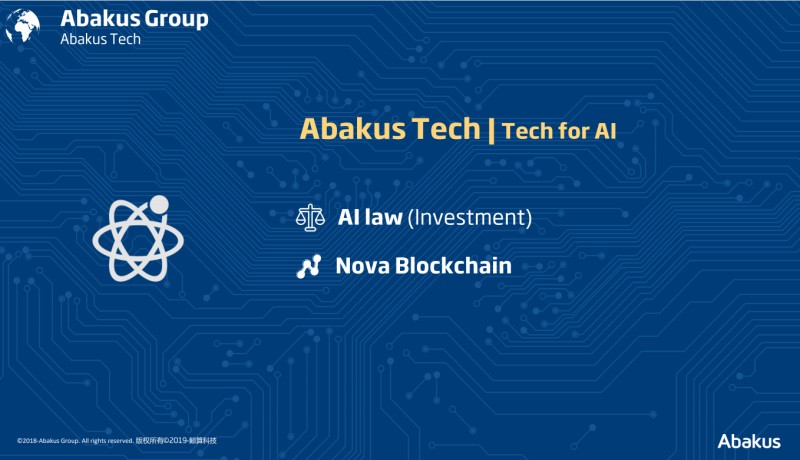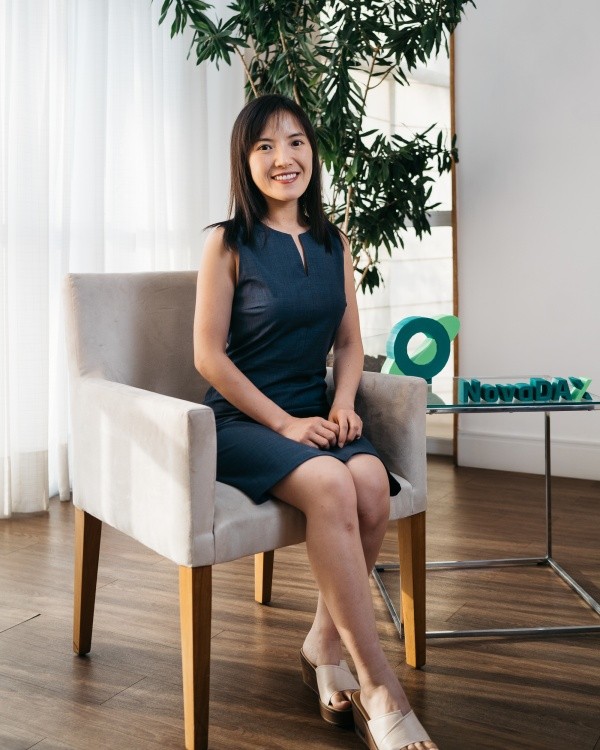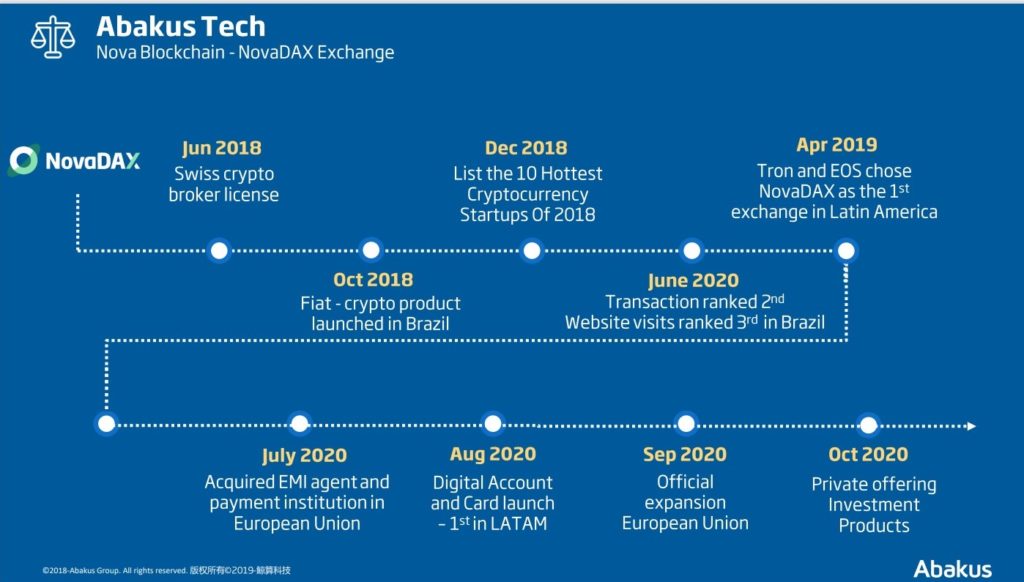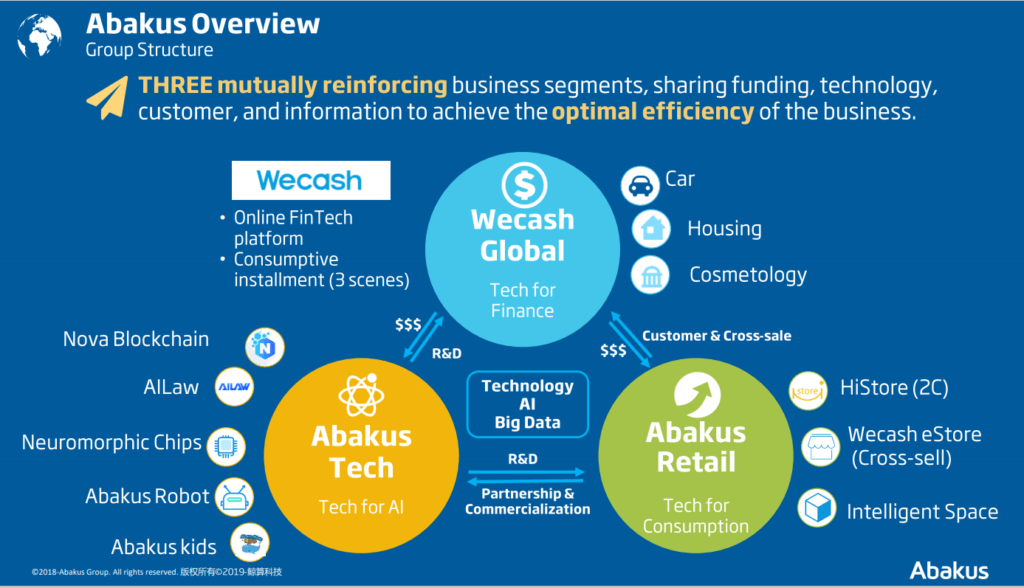NovaDAX CEO: “Compliance Is the Biggest Threat Bitcoin Will Have to Face”

Beibei Liu is the CEO of NovaDAX, one of the biggest cryptocurrency exchanges in Brazil that has also just entered the European market after obtaining licenses from both Switzerland and the UK. With considerable work experience from China, Brazil and now Europe, Ms Liu has a lot to say about not only her work with NovaDAX but the global crypto world as well. We asked and she answered – below is an edited excerpt from our talk about building a crypto exchange business, the impact of COVID-19 on the crypto market, and the future threats bitcoin might face.

BitcoinBázis: Could you tell us a little bit about yourself and NovaDAX?
Beibei Liu: I’m the founding partner of Abakus Group, our parent company; I’ve been working there since 2013. Abakus is a big group in Asia with branches in Thailand, Singapore, China and Indonesia. We started in Brazil in 2018, and two months ago, we expanded to the European market. Actually, we’ve just launched our product after we got a crypto broker license in Switzerland. NovaDAX has also obtained a license from the UK, where we are an authorized payment institution so we can legally accept clients’ deposits.
There are three main parts of our business. The easiest to understand is our trading platform. We deal with crypto-to-crypto as well as fiat-to-crypto. We only do spot exchange, no leverage or derivative trading. The second one is related to payment. In Brazil, we’re the first exchange to launch a digital debit card. The customers can apply for a card, then in their digital account they have a fiat and crypto balance, and they can use both to pay in online and offline payments. This will facilitate conversion in daily payment scenarios.
The third one is an investment platform. This is a private offering. Based on the cypto deposited, we offer interest to the customers. What makes us different is that we want to be a regulated and localized exchange. Which means that we totally respect and strictly comply with local regulations. We pay all taxes and declare all transactions. In Europe, we also have all the necessary licenses as an e-money institution agent. Which means that in Europe we can also offer similar products as we do in Brazil, like the digital account.
BB: You have around 400 000 customers. Do you have an approximate number for the active monthly customers? And is it only in Brazil or in other Latin-American countries too?
BL: Around 50 thousand. For now, we concentrate on the Portuguese-speaking countries, so Brazil and Portugal. The next will probably be Spanish-speaking regions. Our strategy is to provide localized service, so in each country we have to go much deeper. For example, in Brazil we need to tell people that they can pay their phone bills with crypto, too – that’s a priority there.
BB: Have you thought about issuing Visa or Mastercard?
BL: Currently, we are cooperating with a Brazilian brand called Elo. It’s pretty big in Brazil. But it’s a really good question because at the beginning of next year, we’ll also start cooperating with Mastercard.
BB: Let’s talk about the regulation in Brazil. Is it easier there than in European countries?
BL: The environment is not friendly. Maybe two years ago, it was better. But for the new competitors who want to enter the market now, it’s much harder because it’s hard to open a bank account that accepts crypto businesses. We were lucky in that sense, because now we have partnership with five banks – which is a lot, compared to our competitors.
Last year Brazil issued the first law to regulate crypto business. It’s the first step because now you have to record all the transactions in the system. Also, they provide a guideline to the customers to declare their transactions as their income so they know how to pay taxes after them. There’s also a self-regulating body with the five biggest local exchanges which we’re also a part of. This year, we all signed a very complex and comprehensive self-regulation code that covers issues such as AML and the protection of customers’ assets and data.
BB: Is there any deposit insurance already existing in NovaDAX? If not, are there any plans for that?
BL: No, not yet, because in Brazil, there’s no regulation for that. The European market is more mature in that sense, which is also one of the reasons we want to enter the market. We want to use the experience to provide more advanced services in Brazil.
BB: You mentioned that there are five major exchange in Brazil. Where does NovaDAX rank?
BL: Regarding the transaction volume, NovaDAX is in second place, and if we look at the website visits and customer numbers, then we’re at number 3. You can check that on CoinMarketCap, too.
BB: How hard was it to get a license in Europe? How long did it take?
BL: We started the process about one and a half years ago, so it was a long process. But we also have to separate the license from Switzerland and the license from the UK. The Swiss one was easier. They don’t have an official license for exchanges; it’s a broker qualification issued by a self-regulating body. Your company needs to have a minimum cap requirement which was easy for us because our parent company has a very solid background. The UK license (e-money institution agent) is more complex, because first, it takes time. The second issue is that you have cooperate with the banks on the daily transactions and report any suspicious transactions, then you also have to provide monthly financial reports and annual audits.

BB: How big is the company in Brazil? And how many people are going to be working in Europe? Where is the headquarter going to be in Europe?
BL: The developer and product team is based in China with around 40 people. In Brazil, we have a team of around 15 people dealing with the daily operation, commercial and marketing tasks. And in Europe, we’ll have two offices, one in the UK and one in the Netherlands. Because of the issue of Brexit, we are now trying to obtain all the necessary licenses in the Netherlands, too.
BB: What is the main goal of NovaDAX in Europe? Europe is a quite saturated market, so what is your vision on entering the market here?
BL: It’s a very good question because you’re right, this is a very saturated market. But crypto is a global tool that can overcome the boundaries of countries. Two years ago, we thought that it might be an interesting solution to link the Asian and European markets with blockchain, as Abakus, our parent company, is present in both regions. Asia is a developing market and people there need money but sometimes the interest rate is really high. In Europe, on the other hand, people have money but they don’t have good investment opportunities – sometimes people have negative deposit interests and they even have to pay their banks to keep their money there.
This is why it can be good to link these markets. Our thinking is that we can get involved in this industry and then use this tool to link these two regions. The customers can invest in crypto and then we can send this capital to the Asian market.
In the traditional financial market, for example, the Chinese customers can’t invest in the US stock market. Blockchain and crypto completely changed it because all over the globe people have the chance to invest in it.
BB: Are you planning to enter the US market?
BL: No. Not the US, and not China or Japan.
BB: There’s a bull trend now on the cryptocurrency market. What are your thoughts on that?
BL: I remember that in July or August when crypto was rallying, I received a lot of media requests to give a forecast on bitcoin. I said that I truly believed that we’d keep racing. And I still believe that for the long-term, for several reasons. First, this time the interest is boosted by institutions like Square and Grayscale participating, not just the individuals. Also, a lot of traditional exchanges are taking part, giving a solid support of liquidity.
In the long-term, I also believe that bitcoin is going to conquer. Globalization is unstoppable and bitcoin finally gives people all over the world the equal opportunity to invest. People are also becoming more uncertain about fiat currencies which makes people look for alternatives.
BB: How do people perceive cryptocurrencies in Brazil?
BL: People suffer a lot from the depreciation of the local currency. If you look at how much bitcoin’s price rose compared to the dollar, it went up by around 125% [at the time of the interview]. But if you compare it to reals, it rose by more than 300%.
BB: What’s your take on the DeFi craze?
BL: From a technical perspective, it’s very innovative. But to use DeFi in some crypto derivative product, I think is risky because of the system risks. Currently, we don’t offer these kinds of products but we are also following the trend.
BB: What’s your next step after entering the Portuguese market?
BL: As I mentioned, the next step will be the Spanish-speaking countries. In Germany, for example, there are a lot of competitors, then in France, the regulations are stricter.
BB: What about Russia?
BL: No. Yes, the market is big but the competition is very strong. We also have to look at our capabilities. NovaDAX wants to offer localized service so customer service is very important, and that would require more people.

BB: How did you personally get into the crypto world?
BL: The biggest reason was Abakus. I joined Abakus at the very beginning, and I was also one of those who started the Wecash Group in China. I was one of the first managers there and the project became very profitable. We acquired more than 14 million users there. I used to manage a big team, more than 200 people. That was definitely a turning point for me. But I’m definitely better at the startup style, building business from 0 to 1. And at that point, two years ago, crypto was already a hot topic. So, we started thinking, okay, how could we use this new technology? Then came the idea for NovaDAX.
From a personal point of view, I’m not married and I don’t have children – moving to a different country was completely okay for me.
BB: How did COVID-19 impact your business?
BL: It’s complex. On one hand, people have more time to invest. On the other hand, Brazil suffered a lot from the economic crisis. People get poor and lose their jobs which also influences our business.
But all in all, we keep increasing and the pandemic didn’t really impact us.
BB: And what about the other regions like Asia?
BL: It affected Asia a lot. The people who get the loans from us in Asia are smaller business men. Because they suffered a lot from the pandemic, a lot of them can’t repay their loans and the default rate is increasing. But it was worse in the first two quarters and it’s recovering now in Asia.
BB: What is the biggest threat when it comes to crypto in the next years?
BL: The biggest one is compliance. The governments will get more involved. But every country will probably have different regulations and it will definitely make things more complicated.
For more information about NovaDAX, click here. If you want to find out about the trading competition ran by NovaDAX until 4th December, click here.